Description
Buy DigitalOcean cloud accounts
DigitalOcean is a cloud infrastructure provider that offers a range of cloud services to developers, startups, and businesses. There are several reasons why individuals and organizations choose DigitalOcean for their cloud computing needs:
Simplicity and User-Friendly Interface:
- DigitalOcean is known for its simple and intuitive user interface. It makes it easy for users, especially developers, to deploy and manage their applications and infrastructure without a steep learning curve.
Developer-Focused:
- DigitalOcean is particularly popular among developers. It provides a developer-friendly environment with features like Droplets (virtual machines), managed databases, object storage, and more, making it easy for developers to build, deploy, and scale applications.
Cost-Effective:
- DigitalOcean is often considered cost-effective, especially for small to medium-sized projects. It offers transparent and predictable pricing with straightforward billing, making it easier for users to estimate and manage their costs.
Droplets:
- DigitalOcean’s virtual machines, called Droplets, are a key feature. Users can quickly deploy and scale applications by creating Droplets with varying amounts of resources (CPU, memory, and storage) based on their requirements.
Community and Documentation:
- DigitalOcean has a strong and active community. The availability of tutorials, documentation, and community forums makes it easier for users to find solutions to problems, troubleshoot issues, and learn from others.
Managed Services:
- In addition to virtual machines, DigitalOcean offers a variety of managed services such as managed databases, Kubernetes clusters, and object storage. These services simplify the management of infrastructure components, allowing developers to focus more on building and deploying applications.
Global Data Centers:
- DigitalOcean has data centers located in various regions around the world. This allows users to deploy their applications closer to their end-users, reducing latency and improving performance.
Scalability:
- DigitalOcean provides scalable solutions that allow users to easily scale their applications as demand grows. This scalability is essential for businesses that need to adapt to changing workloads.
Security Features:
- DigitalOcean offers security features such as firewalls, monitoring, and backup options. Users can implement security best practices to protect their applications and data.
It’s important to note that the choice of a cloud provider depends on specific project requirements, preferences, and budget considerations. Different cloud providers may be better suited for different use cases, and users often evaluate factors such as performance, support, and additional services when making their decision.
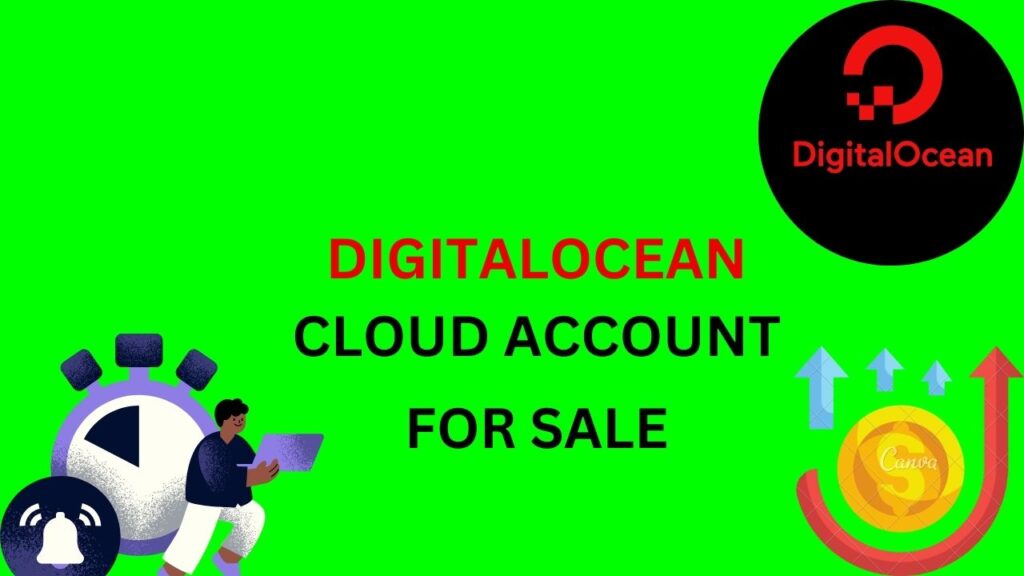
Available DigitalOcean cloud accounts for sale
Whatever your use for personal or business. Single to bulk, tire to premium all types of DigitalOcean accounts are available here.If you are a company or organisation and you need bulk and number of accounts then you are in the right place. Revolutionise your business with our reliable Microsoft Web Services (DigitalOcean), the world’s leading cloud computing platform! For a limited time, experience unmatched scalability, security, and innovation at an unbeatable price.
- Global Reach: Deploy applications worldwide for optimal performance.
- Comprehensive Service Offering: Access a full spectrum of cloud services tailored to your business needs.
- Security and Compliance: Trust DigitalOcean’s industry-leading security measures and compliance certifications.
Seize the opportunity to transform your business with DigitalOcean! Act fast, as this sale won’t last forever. Embrace the cloud revolution today!
Why should you buy verified DigitalOcean cloud accounts?
Yes, like many other cloud service providers, DigitalOcean typically requires users to verify their accounts. Verification is an important step in the account creation process and is designed to ensure the security of the platform and its users. The verification process may involve confirming your email address and possibly providing additional information to verify your identity.
Here are the common steps involved in the verification process:
Email Verification:
- After signing up for a DigitalOcean account, you will likely receive an email asking you to verify your email address. This typically involves clicking on a verification link in the email.
Account Verification:
- DigitalOcean may also require additional verification steps to ensure the legitimacy of the account. This can involve providing information such as your phone number or payment details.
Payment Verification:
- If you plan to use paid services on DigitalOcean, you may need to provide valid payment information, and the payment method may need to be verified. This helps prevent fraudulent use of the platform.
Verification processes are in place to protect both the cloud provider and its users. They help ensure that users are legitimate and can be held accountable for their usage of the platform. Additionally, verification helps prevent abuse and unauthorized access to cloud resources.
The specific steps and requirements for verification may vary, so it’s important to carefully follow the instructions provided by DigitalOcean during the account creation process. If you encounter any issues or have questions about the verification process, you can reach out to DigitalOcean’s support for assistance.
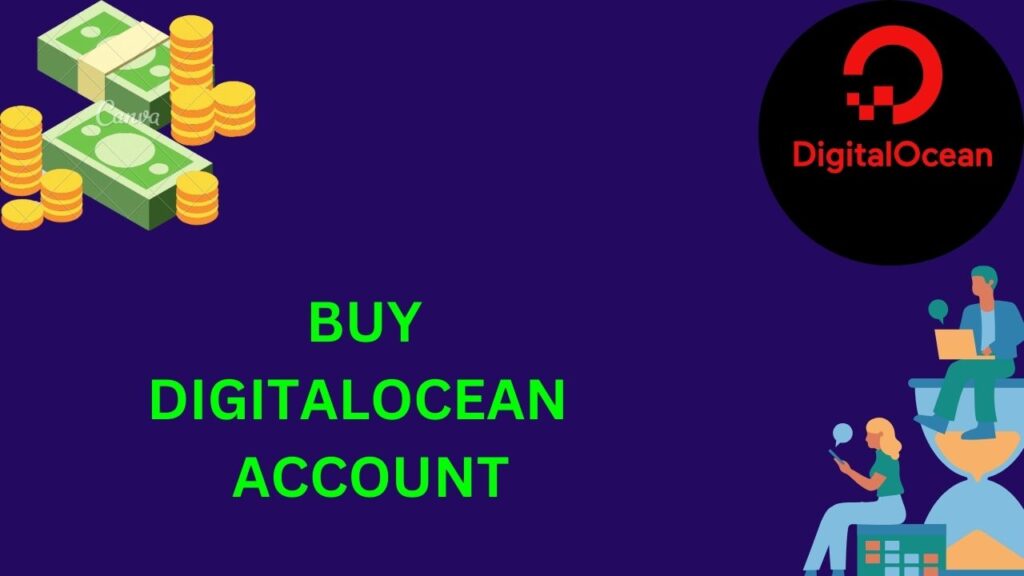
FAQs to buy DigitialOcean cloud account
Certainly! Here are some sample questions and answers related to DigitalOcean Cloud accounts:
Q1: How do I create a DigitalOcean Cloud account?
A1: To create a DigitalOcean Cloud account, visit the DigitalOcean website and click on the “Sign Up” button. Fill in the required information, including your email address and password. You’ll receive a verification email, and once confirmed, your account will be active.
Q2: What payment methods does DigitalOcean accept?
A2: DigitalOcean accepts major credit cards such as Visa, MasterCard, American Express, and Discover. Additionally, they support PayPal as a payment method.
Q3: Is there a free trial for new DigitalOcean users?
A3: While DigitalOcean may offer promotional credits for new users, there isn’t a traditional free trial. You can check their website or contact support for information on any ongoing promotions.
Q4: How can I create a Droplet (virtual machine) on DigitalOcean?
A4: After logging into your DigitalOcean account, navigate to the “Droplets” section. Click the “Create Droplet” button, select your preferred options such as operating system, plan, and data center region, and then click “Create.” Your Droplet will be provisioned shortly.
Q5: What is DigitalOcean’s approach to security?
A5: DigitalOcean prioritizes security and provides features like firewalls, monitoring, and two-factor authentication. They also employ DDoS mitigation measures to safeguard against attacks. Regular security updates and transparency in their security practices contribute to a secure environment.
Q6: How do I set up a domain with DigitalOcean?
A6: To set up a domain, you need to point your domain’s DNS to DigitalOcean’s nameservers. In the DigitalOcean dashboard, navigate to the “Networking” section and add your domain. Configure DNS records, and you can link your domain to specific services like Droplets or load balancers.
Q7: Is there an API for automation and integration with DigitalOcean?
A7: Yes, DigitalOcean cloud provides a robust API that allows users to automate the management of their resources. The API documentation provides details on how to make requests for tasks such as creating Droplets, managing volumes, and more.
Q8: How can I contact DigitalOcean cloud support?
A8: DigitalOcean cloud offers customer support through a ticket-based system. You can submit a support ticket through the control panel. Additionally, they have an active community forum where you can seek assistance from the community or DigitalOcean cloud staff.
Remember, the specifics of answers can change, so always refer to the latest information on DigitalOcean’s official website or contact their support for the most accurate details.
Why do you choose us to buy DigitalOcean accounts?
Here are a few additional information about every one of the following reasons
Competitive rates:
We provide competitive rates when purchasing DigitalOcean cloud as we strive to provide the most price that our users can get. We realise that you’re faced with an option when it comes to purchasing DigitalOcean cloud . We would like to ensure that you select us because we provide the most competitive price.
Secure and safe platform:
We utilise a variety of security measures to safeguard your data, including the use of encryption and fraud prevention along with two-factor security. We are very concerned about security and wish you to have confidence that your transaction is secure when you do business with us.
Speedy and efficient:
We process transactions fast and efficiently due to the fact that we know that time is crucial to you. Our goal is to help you have your DigitalOcean cloud as swiftly as you can, which is why we do our best to ensure that you get your money as swiftly as possible.
Good reputation:
We are known for our excellent customer service. We know that purchasing DigitalOcean cloud can be a challenging undertaking, so we’d like to ensure that you are satisfied. We’re available to answer any questions you may have and assist you in the transaction.
100% money back guarantee:
We only offer a product guarantee, if not three working days, or for 72 hours. cash return guarantee.
Available 24/7:
We are always available to answer any questions you may have and assist you in the transaction. We realise that you could have to purchase DigitalOcean cloud any time of the day or night, so we want to ensure that we’re available to assist you.
We hope that this article will be of help. For any additional queries, please don’t hesitate to get in touch with us.
What can you do to buy DigitalOcean cloud accounts?
With a DigitalOcean cloud account, you can perform a variety of tasks related to cloud computing and infrastructure management. Here are some of the key things you can do with a DigitalOcean cloud account:
Create and Manage Virtual Machines (Droplets):
- Launch and manage virtual machines, known as Droplets, with various configurations of CPU, memory, and storage. These Droplets can run different operating systems and applications.
Deploy Applications:
- Host and deploy web applications, databases, and other services on your Droplets. DigitalOcean cloud supports a variety of applications and programming languages.
Scale Resources:
- Easily scale your infrastructure by adding or resizing Droplets to accommodate changing workloads. This allows you to adapt to increased demand or optimize resource usage.
Networking:
- Configure networking features such as Floating IPs, which allow you to reassign IP addresses between Droplets. Set up firewalls, load balancers, and Virtual Private Cloud (VPC) for enhanced network security and performance.
Storage Options:
- Utilize various storage solutions, including block storage volumes and object storage (Spaces). Attach additional storage to your Droplets or create scalable and redundant storage configurations.
Managed Services:
- Leverage managed services such as Managed Databases (supporting various database engines) and Managed Kubernetes for simplified management of critical infrastructure components.
Domain Management:
- Register domains or connect existing domains to your DigitalOcean cloud account. Manage DNS records and set up domain-related services.
Developer Tools:
- Access developer-friendly tools and APIs to automate infrastructure management tasks. DigitalOcean cloud provides a RESTful API for programmatic control.
Security Features:
- Implement security measures such as firewalls, secure key-based authentication, and Two-Factor Authentication (2FA) to protect your infrastructure and data.
Monitoring and Alerts:
- Set up monitoring and receive alerts for your infrastructure. DigitalOcean cloud Monitoring provides insights into resource usage, and you can configure alerts for specific thresholds.
Collaboration:
- If you’re working on projects with a team, you can collaborate by inviting team members to your DigitalOcean cloud account with different levels of access permissions.
Community and Learning:
- Engage with the DigitalOcean cloud community through forums, tutorials, and documentation. Access a wealth of resources to enhance your knowledge and skills in cloud computing.
Remember that DigitalOcean’s services are continually evolving, and new features may be introduced over time. Always refer to the official DigitalOcean cloud documentation and website for the latest information and capabilities.
Why is the DigitalOcean cloud service the best cloud service in the world?
Determining the “best” cloud service depends on specific needs, preferences, and the nature of the workloads you intend to run. DigitalOcean cloud is a popular cloud service provider, but whether it is the best for you depends on your individual requirements. Here are some reasons why people often choose DigitalOcean:
Simplicity and User-Friendly Interface:
- DigitalOcean cloud is known for its straightforward and user-friendly interface, making it easy for developers, including those who may be new to cloud services, to deploy and manage infrastructure.
Developer-Focused:
- DigitalOcean cloud has a strong appeal to developers. Its services are designed to cater to the needs of developers, offering easy-to-use tools and resources for application development and deployment.
Cost-Effective:
- DigitalOcean cloud is often considered cost-effective, especially for small to medium-sized projects. Its transparent pricing model and straightforward billing make it easy for users to understand and manage their costs.
Droplets and Scalability:
- DigitalOcean’s virtual machines, called Droplets, are simple to create and scale. Users can choose from various Droplet plans based on their resource requirements, providing flexibility as workloads grow.
Managed Services:
- DigitalOcean cloud offers a range of managed services, including Managed Databases and Managed Kubernetes, which simplify the operational aspects of maintaining these critical components.
Community and Documentation:
- DigitalOcean cloud has a vibrant and active community. Their documentation and tutorials are extensive, making it easier for users to find information, troubleshoot issues, and learn best practices.
Predictable Performance:
- DigitalOcean cloud provides consistent and predictable performance for virtual machines, making it suitable for a variety of applications.
Global Data Centers:
- With data centers located around the world, DigitalOcean allows users to deploy resources in regions that are geographically closer to their target audience, reducing latency and improving performance.
While DigitalOcean cloud has its strengths, other cloud providers like Amazon Web Services (AWS), Microsoft Azure, and Google Cloud Platform (GCP) have their own advantages, including a broader range of services, extensive global infrastructure, and enterprise-level features. The choice between cloud providers ultimately depends on your specific use case, technical requirements, and preferences. It’s recommended to carefully evaluate the features and pricing of different providers to determine the best fit for your needs.
Compare DigitalOcean cloud service with other cloud services
Comparing DigitalOcean cloud with other cloud service providers involves evaluating various factors such as services offered, performance, pricing, global infrastructure, and target audience. Here, I’ll compare DigitalOcean cloud with two of the major cloud providers: Amazon Web Services (AWS) and Microsoft Azure.
1. Service Offerings:
- DigitalOcean cloud : Primarily focuses on simplicity and developer-friendly services. Offers virtual machines (Droplets), managed databases, object storage (Spaces), and Kubernetes.
- AWS: Provides an extensive range of services, including computing power (EC2), storage solutions (S3), databases (RDS), machine learning (SageMaker), and more.
- Azure: Offers a comprehensive set of services, including virtual machines (VMs), databases (Azure SQL Database), AI and machine learning tools, and a wide array of developer tools.
2. Global Infrastructure:
- DigitalOcean cloud : Has data centers in multiple regions globally but is not as extensive as AWS or Azure.
- AWS: Boasts a vast global infrastructure with data centers in numerous regions and availability zones, providing high scalability and redundancy.
- Azure: Also has a robust global presence, with data centers in many regions worldwide.
3. Developer-Friendly Interface:
- DigitalOcean cloud : Known for its simple and user-friendly interface, appealing to developers.
- AWS: Offers a feature-rich console but can be more complex, especially for beginners.
- Azure: Strives to provide a user-friendly experience, particularly for developers familiar with Microsoft technologies.
4. Managed Services:
- DigitalOcean cloud : Provides managed services like Managed Databases and Managed Kubernetes.
- AWS: Offers a vast array of managed services, including AWS Lambda (serverless), AWS Elastic Beanstalk, and more.
- Azure: Similar to AWS, provides a wide range of managed services, including Azure Functions (serverless) and Azure App Service.
5. Pricing:
- DigitalOcean cloud : Known for transparent and straightforward pricing, often considered cost-effective, especially for smaller projects.
- AWS: Offers a pay-as-you-go pricing model with various pricing options. It can be more complex, and costs can vary based on usage.
- Azure: Utilizes a pay-as-you-go model with a wide range of services. Pricing can be complex, and users should carefully estimate costs.
6. Community and Support:
- DigitalOcean cloud : Has a strong and active community. Support is available through a ticket-based system.
- AWS: Offers extensive documentation, a large user community, and various support plans.
- Azure: Provides comprehensive documentation, forums, and support options.
7. Enterprise Focus:
- DigitalOcean cloud : Primarily targets small to medium-sized businesses and individual developers.
- AWS: Extensively used by enterprises, offering a broad spectrum of services for diverse use cases.
- Azure: Strong presence in the enterprise market, particularly among organizations using Microsoft technologies.
Choosing between DigitalOcean cloud , AWS, and Azure depends on your specific needs, budget, and familiarity with the platforms. DigitalOcean cloud is often favored for simplicity and cost-effectiveness, while AWS and Azure are suitable for larger enterprises with diverse requirements and scalability needs. It’s advisable to assess the features, pricing, and support options of each provider to determine the best fit for your particular use case.
Cons of DigitalOcean cloud accounts
While DigitalOcean cloud is a popular cloud service provider known for its simplicity and developer-friendly environment, there are some potential drawbacks or considerations that users should be aware of:
Limited Enterprise Features:
- DigitalOcean cloud is primarily geared towards developers and smaller businesses. If you have large-scale enterprise requirements or need extensive features offered by major cloud providers like AWS or Azure, DigitalOcean cloud may not provide all the enterprise-focused services you require.
Service Offering Scope:
- Compared to major cloud providers, DigitalOcean’s service offerings are more focused. While it covers essential services like Droplets (virtual machines), managed databases, and object storage, it may not have the breadth of services available from larger cloud providers.
Smaller Global Infrastructure:
- DigitalOcean cloud has data centers in multiple regions, but its global infrastructure is not as extensive as that of AWS or Azure. This could impact your ability to place resources close to your end-users in certain regions.
Complexity for Advanced Users:
- While DigitalOcean cloud is praised for its simplicity, more advanced users who require intricate configurations and a broader range of services might find the platform limiting. AWS and Azure, with their extensive service catalogs, may better suit complex enterprise architectures.
Networking Features:
- While DigitalOcean cloud offers essential networking features, more advanced networking capabilities provided by major cloud providers may be required for certain use cases. Features like dedicated network connections and extensive content delivery network (CDN) services may be more limited on DigitalOcean cloud .
Marketplace Ecosystem:
- DigitalOcean’s marketplace ecosystem might not be as extensive as those of larger cloud providers. This could impact your ability to easily integrate third-party services and solutions into your infrastructure.
Customization Limitations:
- While DigitalOcean cloud provides various Droplet plans, the level of customization may not be as granular as some users might need. Larger cloud providers often offer more options in terms of instance types, storage configurations, and other parameters.
Dependency on External Services:
- DigitalOcean cloud relies on external services for certain features. For example, it uses spaces from third-party providers for its object storage service. While this is common in the industry, some users might prefer an all-in-one solution.
Market Perception:
- DigitalOcean cloud might not have the same market perception or recognition as major cloud providers like AWS, Azure, or Google Cloud Platform. This can sometimes influence decision-making, particularly for enterprises.
It’s important to note that these considerations may or may not be relevant based on your specific use case and requirements. DigitalOcean cloud has its strengths, particularly for smaller projects and startups, but users should carefully assess their needs and compare them with the features and limitations of DigitalOcean cloud before making a decision.
Identity and Security of DigitalOcean cloud accounts
The identity and security of a DigitalOcean cloud account are crucial aspects to ensure the safety of your cloud infrastructure and data. Here are key considerations related to identity and security on DigitalOcean:
1. Account Creation and Verification:
- Identity Verification: During the account creation process, DigitalOcean cloud typically requires users to verify their email address. This step helps confirm the identity of the account owner.
2. Authentication and Access Control:
- Password Security: Choose a strong and unique password for your DigitalOcean cloud account. Use a combination of uppercase and lowercase letters, numbers, and special characters.
- Two-Factor Authentication (2FA): Enable 2FA for an additional layer of security. This typically involves receiving a code on your mobile device, providing an extra step to verify your identity.
3. Secure Communication:
- HTTPS: Always access the DigitalOcean cloud control panel using a secure connection (https://). This helps encrypt data transmitted between your device and DigitalOcean’s servers.
4. SSH Key Management:
- SSH Key Authentication: If you use SSH to access your Droplets, consider using SSH key authentication rather than password authentication for enhanced security.
5. Firewalls:
- DigitalOcean cloud Firewalls: Leverage DigitalOcean’s built-in firewalls to control incoming and outgoing traffic to your Droplets. Define rules based on IP addresses and port ranges.
6. Monitoring and Alerts:
- DigitalOcean cloud Monitoring: Enable monitoring to receive alerts on unusual activity or resource usage. This helps in identifying potential security incidents.
7. Regular Audits and Updates:
- Audit Account Activity: Regularly review your account activity and access logs. Report any suspicious or unauthorized activity to DigitalOcean cloud support.
- Keep Software Updated: Regularly update the software and applications running on your Droplets to patch security vulnerabilities.
8. Data Encryption:
- Data at Rest Encryption: If sensitive data is stored on your Droplets, consider implementing encryption mechanisms to protect data at rest.
9. DigitalOcean cloud Support:
- Contact Support for Security Concerns: If you suspect a security issue or need assistance with security-related matters, contact DigitalOcean cloud support promptly.
10. Compliance:
- Understand Compliance Standards: Depending on your industry or regulatory requirements, ensure that your usage of DigitalOcean cloud complies with relevant standards and regulations.
11. Community and Best Practices:
- Community Resources: Engage with the DigitalOcean cloud community and review security best practices provided in DigitalOcean’s documentation.
12. Regular Backups:
- Backup Important Data: Regularly back up critical data to prevent data loss in case of accidental deletion or a security incident.
13. Educate Users:
- Educate Team Members: If you’re working with a team, ensure that all team members are educated about security best practices and the specific security features provided by DigitalOcean cloud .
By following these practices, you can enhance the security of your DigitalOcean cloud account and the infrastructure hosted on their platform. Always stay informed about security updates and best practices provided by DigitalOcean cloud.
Conclusion of DigitalOcean cloud accounts
In conclusion, a DigitalOcean cloud account provides users with a straightforward and developer-friendly platform to deploy and manage infrastructure. DigitalOcean cloud is well-suited for small to medium-sized projects, startups, and individual developers. Here are some key points to consider:
Simplicity and User-Friendly Interface:
- DigitalOcean cloud is known for its easy-to-use and intuitive interface, making it accessible for users with varying levels of expertise. This simplicity is especially attractive to developers.
Developer-Focused Services:
- DigitalOcean cloud offers a range of services designed with developers in mind, including Droplets (virtual machines), managed databases, object storage, and Kubernetes clusters. This focus on developer needs contributes to a streamlined experience.
Cost-Effective Pricing:
- DigitalOcean cloud is often considered cost-effective, with transparent pricing and predictable billing. This makes it easier for users to understand and manage their costs, particularly for smaller projects.
Scalability and Flexibility:
- Users can easily scale their infrastructure by creating and resizing Droplets to accommodate changing workloads. The platform provides flexibility for users to adapt to increased demand or optimize resource usage.
Managed Services:
- DigitalOcean cloud offers managed services, including Managed Databases and Managed Kubernetes, simplifying the management of critical infrastructure components and allowing developers to focus on building applications.
Global Data Centers:
- With data centers in various regions around the world, users can deploy resources closer to their end-users, reducing latency and improving overall performance.
Community and Documentation:
- DigitalOcean cloud has a strong and active community, providing valuable resources such as tutorials, documentation, and forums. This community support enhances the learning and troubleshooting experience for users.
Security Features:
- DigitalOcean cloud provides security features such as firewalls, monitoring, and Two-Factor Authentication (2FA) to help protect users’ infrastructure and data.
While DigitalOcean cloud has these advantages, it’s essential to recognize its limitations:
- Scope of Services: DigitalOcean’s service offerings may be more limited compared to major cloud providers like AWS, Azure, or Google Cloud. It may not be suitable for large-scale enterprise projects with diverse requirements.
- Global Infrastructure: While DigitalOcean cloud has a global presence, its infrastructure may not be as extensive as that of larger cloud providers, potentially impacting the ability to place resources in specific regions.
- Advanced Features: Users with advanced or complex requirements may find DigitalOcean cloud lacking in certain advanced features and services provided by major cloud providers.
Ultimately, the choice of DigitalOcean cloud depends on individual needs, project requirements, and the desired balance between simplicity and feature richness. Users should carefully evaluate their specific use cases and consider factors such as scalability, available services, and global reach when choosing a cloud provider.


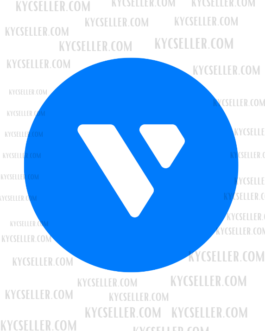
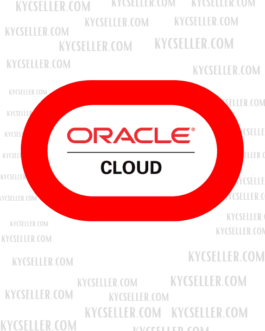

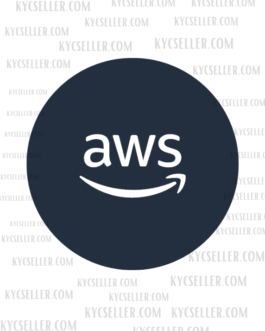
Reviews
There are no reviews yet.